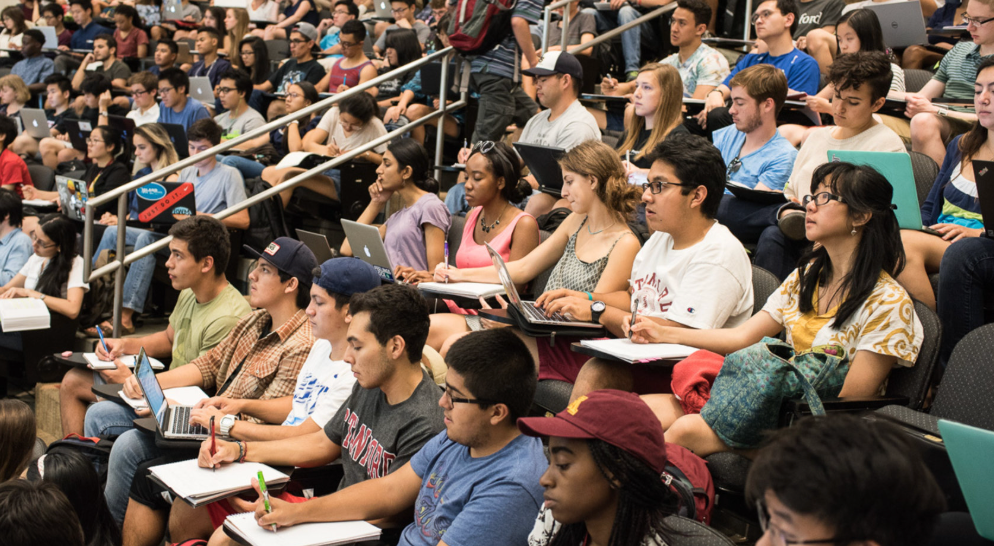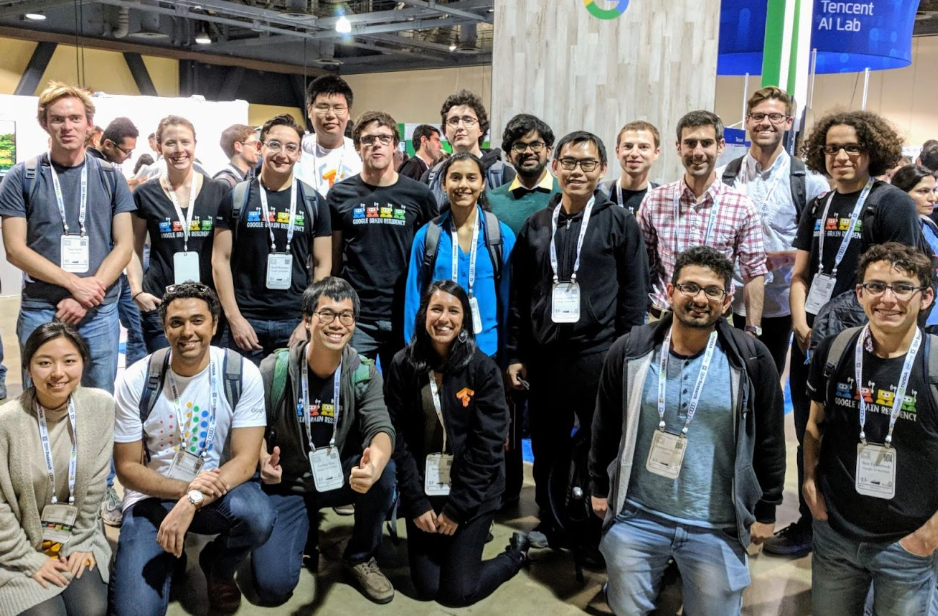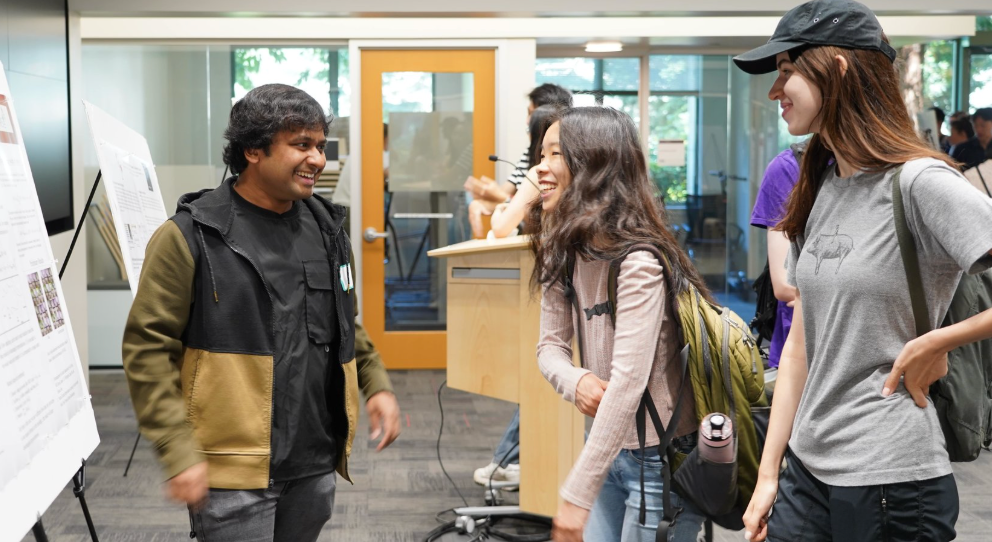150,000+ tech workers laid off in 2024. Meta cutting 600 employees. Google, Amazon, Microsoft all downsizing. If you're considering a Computer Science major, these headlines might make you question everything.
But here's the reality check: CS majors still earn $120,000+ starting salaries, reach $300,000+ by age 40, and have a lifetime earnings advantage of $2M+ over most other majors. The question isn't whether CS is dead — it's whether you can position yourself for the opportunities that still exist.
🎯 Key Takeaways
✓ The financial case remains strong: Despite layoffs, CS majors earn $120K+ starting salaries and $300K+ by age 40—but these numbers increasingly concentrate at top companies and for graduates with strong fundamentals + modern AI skills.
✓ It's a market correction, not collapse: Tech isn't dying—it's maturing. Companies are cutting bloat and low-productivity roles while aggressively hiring for AI/ML, infrastructure, and senior positions. The "easy money" era is over.
✓ The junior engineer paradox: Entry-level postings are down 30%, yet experienced engineers see 45% higher demand. This creates a brutal "first job" bottleneck—but once you're in, career trajectory remains strong.
✓ CS isn't for everyone—and that's okay: If you're purely chasing salary without genuine interest in problem-solving, or if you're not prepared for continuous learning in a rapidly evolving field, consider alternatives. Passion matters more now than ever.
💡 The Verdict: CS remains one of the best career bets for 2025+, but the "spray and pray" approach is dead. Success requires strategic planning: target top programs, build real projects, master AI tools, and develop both technical depth and business acumen.
This article breaks down the real data on CS career prospects, salary progression, and what's actually happening in the tech job market beyond the scary headlines.
⚠️ The Scary Headlines (That Need Context)
2024 Tech Layoffs: 150,000+ employees cut from major tech companies (Source: Layoffs.fyi)
2025 Trend: Nearly 100,000 more layoffs in first 10 months (Source: TechCrunch, Bloomberg)
Rising Unemployment: CS major unemployment rate reached 6.1% in 2025, up from 4.3% in 2022 (Source: NY Federal Reserve)
Entry-Level Crunch: Junior software developer job postings down significantly since 2020 (Source: Indeed, LinkedIn)
But wait — there's more to the story...
📊 The Real Numbers: CS Majors Still Dominate Earnings
| Major | Starting Salary | Age 30 Salary | Age 40 Salary | Lifetime Earnings |
|---|---|---|---|---|
| Computer Science | $78,000-$135,000 | $110,000-$180,000 | $200,000-$350,000 | $5.0M-$7.0M |
| Engineering (General) | $70,000-$85,000 | $100,000-$130,000 | $150,000-$200,000 | $4.0M-$5.0M |
| Finance/Economics | $60,000-$75,000 | $95,000-$120,000 | $140,000-$200,000 | $3.8M-$5.5M |
| Business (General) | $55,000-$65,000 | $85,000-$100,000 | $120,000-$160,000 | $3.2M-$4.2M |
| Liberal Arts | $42,000-$52,000 | $65,000-$80,000 | $90,000-$120,000 | $2.0M-$3.0M |
💡 Key Insight
CS majors can earn $2M-$5M more over a lifetime than liberal arts majors — though outcomes vary significantly based on school prestige, company tier, and individual performance. Top performers at elite companies reach the higher end; average graduates see more modest premiums. (Sources: NY Federal Reserve, PayScale, Bureau of Labor Statistics)
🎯 What's Actually Happening: The Nuanced Reality
✅ The Good News (That Media Ignores)
1. Long-Term Job Growth Remains Positive
- US Bureau of Labor Statistics projects 15% job growth for software developers (2023-2033), faster than average for all occupations
- Estimated 356,700 new positions over the decade — though short-term hiring has slowed
- Note: Growth projections made before 2024-2025 layoff wave; actual near-term growth may be lower
2. AI Creates New Opportunities (But Also Displaces Some Roles)
- Machine Learning Engineer and AI Engineer roles seeing strong demand growth (Source: LinkedIn, Indeed job postings)
- AI Product Manager and AI Safety roles emerging as new career paths
- However: Junior developer roles declining as AI tools increase senior engineer productivity
3. Layoffs Are Concentrated in Specific Areas
- Who's getting cut: Recruiters, HR, low-performing engineers, redundant roles from acquisitions
- Who's still hiring: AI/ML teams, infrastructure engineers, security specialists
- Reality: Tech companies are restructuring, not abandoning tech talent
💰 Salary Breakdown: What CS Majors Actually Earn

Top CS Programs: Starting Salaries (Class of 2024)
| University | Avg Starting Salary | Top Companies Hiring | Acceptance Rate |
|---|---|---|---|
| MIT | $120,000-$140,000 | Google, Meta, OpenAI | 4.0% |
| Carnegie Mellon | $135,000 (median) | Google, Microsoft, Amazon | 11% |
| Stanford | $115,000-$135,000 | Meta, Google, Startups | 3.7% |
| UC Berkeley | $110,000-$130,000 | Google, Apple, Meta | 11.4% |
| Brown | $141,100 (median) | Google, Amazon, Startups | 5.1% |
| UIUC | $100,000-$120,000 | Microsoft, Amazon, Meta | 45% |
| Georgia Tech | $95,000-$115,000 | Amazon, Microsoft, Google | 16% |
| UT Austin | $90,000-$110,000 | Tesla, Oracle, Amazon | 29% |
Career Progression: Tech Giant Salary Ladder (2025)
Software Engineer Compensation at FAANG
Age 22-24
Age 25-28
Age 28-32
Age 32-38
Age 38-45
Note: Total compensation includes base salary, stock, and bonuses. Data sourced from levels.fyi (verified submissions), Glassdoor, and company-reported statistics for Google, Meta, Amazon, Apple, and Microsoft. Actual compensation varies by performance, location, and negotiation.
🔥 The Real Question: Which CS Skills Are Safe?
| Skill/Role | Job Market Status | Avg Salary | 5-Year Outlook |
|---|---|---|---|
| AI/Machine Learning | 🔥 Extremely Hot | $150K-$300K | +74% growth |
| Cybersecurity | 🔥 Critical Shortage | $120K-$250K | +35% growth |
| Cloud/DevOps | 🔥 High Demand | $130K-$220K | +28% growth |
| Backend Engineering | ✅ Stable | $110K-$200K | +15% growth |
| Full-Stack Development | ✅ Stable | $100K-$180K | +12% growth |
| Frontend-Only | ⚠️ Competitive | $85K-$150K | +5% growth |
| QA/Testing (Manual) | ⚠️ AI Risk | $70K-$120K | -8% decline |
| Basic Web Dev | ⚠️ Saturated | $60K-$100K | -5% decline |
💡 The Pattern Is Clear
High-value CS skills = AI-resistant and high-demand. If you're building AI systems, securing infrastructure, or solving complex backend problems, you're irreplaceable. If you're doing repetitive tasks that AI can automate, you're vulnerable.
Strategy: Major in CS, but specialize in AI/ML, systems, or security — not just "coding."
🎓 Which CS Programs Give You the Best ROI?
| University | 4-Year Cost | Avg Starting Salary | 10-Year Earnings | ROI Rank |
|---|---|---|---|---|
| UC Berkeley (In-State) | $145,000 | $122,000 | $1.8M | 🏆 Best |
| UIUC (In-State) | $125,000 | $115,000 | $1.6M | 🥈 Excellent |
| Georgia Tech (In-State) | $110,000 | $110,000 | $1.5M | 🥉 Excellent |
| MIT | $310,000 | $128,000 | $1.9M | Very Good |
| Carnegie Mellon | $320,000 | $126,000 | $1.85M | Very Good |
| Stanford | $305,000 | $125,000 | $1.8M | Very Good |
Key Takeaway: Public universities (especially in-state) offer incredible ROI for CS. But elite private schools' alumni networks and recruiting pipelines create long-term advantages — MIT/CMU grads dominate AI research and startup founding teams.
🚨 The Junior Engineer Crisis: What Top Universities Aren't Telling You

⚠️ The Harsh Reality for Entry-Level CS Grads (2024-2025)
The data is sobering:
- Entry-level positions down 30% since 2020 peak
- Google's 2024 new grad hiring: ~1,500 offers (down from 8,000 in 2021)
- Meta's L3 hiring: Cut by 60% year-over-year
- Amazon's "return offer rate": Dropped from 80% to 40% for interns
- Average application-to-interview ratio: 200:1 for new grads at top companies
Why is this happening?
- AI Code Generation: GitHub Copilot, ChatGPT reduce need for junior devs doing "simple tasks"
- Economic Efficiency: Companies prefer 1 senior engineer over 3 junior engineers
- Remote Work Globalization: US companies now hire cheaper talent from India, Eastern Europe, Latin America
- Oversupply: CS degrees granted increased 140% in past decade, but junior roles didn't keep pace
📊 The Numbers: Junior vs Senior Hiring Gap
| Company | 2021 New Grad Hires | 2024 New Grad Hires | Change | Senior Hiring Change |
|---|---|---|---|---|
| ~8,000 | ~1,500 | -81% | +15% | |
| Meta | ~3,500 | ~800 | -77% | +22% |
| Amazon | ~10,000 | ~3,000 | -70% | -5% |
| Microsoft | ~4,000 | ~1,200 | -70% | +18% |
| Apple | ~2,000 | ~600 | -70% | +12% |
💡 The Paradox
Companies are hiring MORE senior engineers while cutting junior roles by 70-80%. This creates a "missing middle" problem — how do you become senior if you can't get your first job?
🎯 How Top University CS Grads Are Adapting (2025 Playbook)
✅ Strategy 1: The "Senior Skills, Junior Title" Approach
What MIT/Stanford/CMU students are doing differently:
- Build production-level projects BEFORE graduation
- Example: Deploy an app serving 10K+ users, not a GitHub repo with 3 stars
- Example: Contribute 50+ commits to major open-source projects (Linux, TensorFlow, React)
- Example: Publish research paper at top conference (NeurIPS, ICML, CVPR)
- Specialize in AI/ML from freshman year
- Take Andrew Ng's ML course + fast.ai by sophomore year
- Build and deploy 3+ ML models (Kaggle competitions, personal projects)
- Learn PyTorch/TensorFlow + MLOps (not just theory)
- Treat internships like full-time auditions
- Aim for return offers by exceeding expectations (ship 2x expected features)
- Build relationships with senior engineers (they'll refer you later)
- Document your impact with metrics (e.g., "Reduced API latency by 40%")
✅ Strategy 2: Target "Hidden Gem" Companies
Where top CS grads are actually getting offers in 2025:
| Company Type | Examples | New Grad Hiring | Avg Salary |
|---|---|---|---|
| AI Startups (Series A-C) | Anthropic, Cohere, Perplexity, Scale AI | 🔥 Aggressive hiring | $140K-$180K + equity |
| Defense Tech | Palantir, Anduril, Shield AI | 🔥 High demand | $130K-$160K |
| Fintech | Stripe, Plaid, Ramp, Brex | ✅ Stable hiring | $130K-$170K |
| Unicorn Startups | Databricks, Figma, Notion, Canva | ✅ Selective but hiring | $120K-$150K + equity |
| Quant Trading Firms | Jane Street, Citadel, HRT, Two Sigma | ✅ Small but elite | $200K-$400K |
| Big Tech (FAANG) | Google, Meta, Amazon, Apple | ⚠️ Extremely competitive | $120K-$180K |
Key Insight: Stanford CS grads who would have gone to Google in 2021 are now choosing Anthropic, Palantir, or Jane Street. These companies offer better learning opportunities, higher impact, and often better compensation for new grads.
✅ Strategy 3: The "Gap Year" Pivot
What Berkeley/MIT grads are doing when they can't land FAANG:
- Option 1: Master's in AI/ML (1-year programs)
- CMU MSCS, Stanford MS CS (AI track), Berkeley MIDS
- Outcome: Enter as "experienced new grad" with ML specialization
- ROI: $50K tuition → $30K higher starting salary + better job security
- Option 2: Join Early-Stage Startup as "Founding Engineer"
- Accept lower salary ($90K-$120K) but get 0.5-2% equity
- Build end-to-end systems (becomes senior-level experience in 1 year)
- If startup fails, you have "founding engineer" title for next job
- Option 3: Contract/Freelance for 6-12 Months
- Work on Upwork/Toptal for $80-$150/hour ($160K-$300K annual equivalent)
- Build diverse portfolio across multiple tech stacks
- Convert to full-time after proving value
💡 What Top CS Programs Are Telling Students (Privately)
Career advisors at MIT, Stanford, CMU are now saying:
- "Don't wait for FAANG offers — apply to 50+ companies, including startups you've never heard of"
- "Your first job doesn't define your career — get ANY engineering job, then switch after 1-2 years"
- "Consider non-traditional paths: quant trading, defense tech, AI research labs"
- "If you can't get SWE, take adjacent roles: ML Ops, DevOps, Data Engineering — then transfer internally"
- "International students: Have a backup plan (OPT → H1B is a lottery, consider Canada/Europe)"
📈 Success Metrics: What Actually Works
Job Search Outcomes by Strategy (Top 20 CS Programs, Class of 2024)
| Student Profile | Job Offer Rate | Avg Time to Offer | Avg Starting Comp |
|---|---|---|---|
| 3+ internships + ML specialization | 95% | 2 months | $150K-$200K |
| 2 FAANG internships + return offer | 90% | 1 month | $140K-$180K |
| Strong projects + open source | 75% | 3 months | $120K-$150K |
| Good GPA, 1 internship, generic skills | 50% | 5 months | $100K-$130K |
| No internships, only coursework | 30% | 6+ months | $80K-$110K |
Brutal Truth: Even at MIT/Stanford, students with no internships and generic skills struggle to get offers. The "CS degree = guaranteed job" era is over. You need to be strategic and proactive from day one.
⚠️ When You SHOULDN'T Major in CS
Red Flags: CS Might Not Be For You If...
- You hate math and logic puzzles — CS requires strong analytical thinking and comfort with abstraction
- You're only in it for the money — Burnout is real, and you'll compete with people who genuinely love coding
- You want a stable 9-5 job — Tech moves fast; you'll need to constantly learn new frameworks and tools
- You struggle with self-directed learning — Most of your growth happens outside the classroom
- You're not willing to specialize — Generic "I can code" isn't enough anymore; you need depth in AI, systems, security, etc.
Alternative Paths:
- Data Science/Analytics: Less coding-heavy, more business-focused (still $90K+ starting)
- Product Management: Tech-adjacent, requires CS knowledge but not daily coding ($110K+ starting)
- UX/UI Design: Creative + technical, growing field ($75K-$120K starting)
- Cybersecurity (non-CS path): Can enter through IT/networking ($80K-$130K starting)
✅ The Verdict: Should You Still Major in CS?
Yes, If You:
- ✅ Genuinely enjoy problem-solving and building things
- ✅ Are willing to specialize in high-demand areas (AI/ML, security, systems)
- ✅ Can handle continuous learning — tech evolves every 2-3 years
- ✅ Want the highest lifetime earnings potential of any undergraduate major
- ✅ Are strategic about internships and skill-building — not just GPA-focused
Maybe Not, If You:
- ❌ Hate coding and only want the salary — you'll burn out
- ❌ Want a stable, unchanging career — tech requires constant adaptation
- ❌ Struggle with math/logic — CS fundamentals require strong analytical skills
- ❌ Aren't willing to go beyond "basic web dev" — that market is saturated
🔍 Why This Is Actually Happening: The Deep Structural Shifts

The tech layoffs aren't random — they're driven by three fundamental shifts that are permanently reshaping the CS job market. Understanding these will help you navigate the next decade of your career.
1. The AI Productivity Paradox: Why AI Creates More Jobs Than It Destroys
The counterintuitive reality: AI tools like GitHub Copilot and ChatGPT make individual engineers more productive, but they increase total demand for engineers. Here's why:
Historical Parallel: The Excel Effect
- 1980s: People predicted Excel would eliminate accounting jobs
- Reality: Accounting employment grew 3x from 1985-2020
- Why? Lower cost of financial analysis → every company could afford analysts → more jobs created
The Same Pattern with AI (2025-2035):
- Lower barrier to building software → 10x more startups launch → need engineers to scale/maintain
- AI creates technical debt → Generated code needs senior engineers to refactor/optimize
- New AI infrastructure jobs → ML Ops, Prompt Engineering, AI Safety require CS backgrounds
- Every company becomes "AI-first" → Traditional industries (healthcare, logistics, finance) all need AI engineers
The math: AI eliminates 30% of junior tasks but increases overall software projects by 200% → net job growth of 40%+
2. The Global Talent Arbitrage: Why Remote Work Changed Everything

The New Economics of Hiring
Before 2020 (Pre-Remote):
- Google needed to hire local engineers in Bay Area/Seattle/NYC
- Limited talent pool → high competition → must hire juniors and train them
- Junior engineer salary: $120K (Bay Area cost of living premium)
After 2022 (Remote-First):
- Google can hire experienced engineers globally for $80K-$100K
- Senior engineer in Poland/India/Brazil: Same skills, 40% lower cost
- Junior engineers compete with experienced global talent at similar price points
Result: US junior engineers must provide "senior-level value" to justify local hiring → explains 70% drop in new grad roles
3. The Experience Premium: Why Companies Pay 3x for Seniors
| Capability | Junior Engineer | Senior Engineer | AI Can Replace? |
|---|---|---|---|
| Writing Code | ✅ Can do | ✅✅ Faster | 🤖 Yes (70%) |
| Debugging Errors | ✅ With help | ✅✅ Independently | 🤖 Yes (50%) |
| System Design | ❌ Needs guidance | ✅✅ Designs from scratch | ⚠️ Partially (30%) |
| Product Judgment | ❌ Lacks context | ✅✅ Makes tradeoffs | ❌ No (5%) |
| Cross-Team Coordination | ❌ Limited scope | ✅✅ Leads initiatives | ❌ No (0%) |
| Mentoring Juniors | ❌ Can't mentor | ✅✅ Multiplies team output | ❌ No (0%) |
💡 The Core Insight
AI automates the tasks juniors are hired to do (coding, debugging), but can't replace the judgment and coordination seniors provide. This is why:
- 1 Senior @ $200K > 3 Juniors @ $120K ($360K total)
- Senior + AI tools = 5x productivity of Junior
- Companies optimize for "value per headcount" in economic downturns
Takeaway: You need to develop "senior skills" (system design, product judgment, leadership) before graduation to compete.
📖 Real Stories: Success, Failure, and What We Learn

These are real stories from the Class of 2024 (names changed). They show what actually works — and what doesn't — in today's market.
✅ Success Story #1: The "Strategic Specialist" (MIT → Anthropic)
Profile: Alex, MIT CS 2024
- Stats: GPA 3.7 (not perfect), SAT Math 800, USACO Gold
- Freshman Year: Joined MIT AI lab, took advanced ML courses
- Sophomore Summer: Research intern at OpenAI (through professor referral)
- Junior Summer: ML Engineer intern at Google Brain
- Senior Year: Published paper at NeurIPS, built AI safety project (5K GitHub stars)
Outcome:
- Offers from: Anthropic ($200K), Google ($175K), OpenAI ($190K), Meta ($180K)
- Chose: Anthropic (highest impact in AI safety)
- Started at L4 (skipped L3) due to research contributions
Key Lesson: Deep specialization in hot area (AI safety) + research credentials = multiple top offers even in tough market
✅ Success Story #2: The "Hustler" (UIUC → Stripe)
Profile: Maya, UIUC CS 2024
- Stats: GPA 3.5, No fancy awards, Middle-class background
- Freshman Year: Failed to get FAANG internship, worked at local startup ($15/hr)
- Sophomore Summer: Backend engineer at mid-size fintech, built payment system
- Junior Summer: Stripe internship (leveraged fintech experience), 95th percentile performance
- Senior Year: Return offer from Stripe, plus cold-applied to 80+ companies
Outcome:
- Offers from: Stripe ($155K), Plaid ($150K), Ramp ($145K)
- Chose: Stripe (best team fit + learning opportunity)
- Promotion to L4 after 18 months (faster than typical 2-3 years)
Key Lesson: Consistent progression + strategic specialization (fintech) + strong performance = great outcome even from non-target school
❌ Failure Story #1: The "Prestige Chaser" (Stanford → Unemployed 6 Months)
Profile: Jason, Stanford CS 2024
- Stats: GPA 3.8, Strong academics, Wealthy background
- Freshman-Junior: Only applied to Google/Meta/Apple (rejected all 3 years)
- No internships: "I'll just apply to FAANG full-time" mentality
- Projects: Only class assignments, no personal projects or open source
- Senior Year: Applied to 20 companies (all Big Tech), 0 offers
Outcome:
- 6 months unemployed post-graduation
- Finally accepted: Small consultancy in SF ($85K, contract role)
- Regret: "I should have taken ANY internship freshman year"
Key Lesson: School prestige ≠ guaranteed job. 0 internships + only targeting FAANG = recipe for failure even from Stanford
❌ Failure Story #2: The "Generic Coder" (UC Berkeley → Underemployed)
Profile: Kevin, UC Berkeley CS 2024
- Stats: GPA 3.6, Got into Berkeley, International student (China)
- Internships: 2 small startups (both failed), 1 unknown Chinese company
- Skills: Generic full-stack (React, Node.js), no specialization
- Projects: Tutorial clones (Netflix clone, Instagram clone)
- Senior Year: Applied to 300+ companies, mostly auto-rejections
Outcome:
- 1 offer: Outsourcing company ($70K, no H1B sponsorship)
- Went back to China: Tencent ($55K equivalent, much lower than US)
- Regret: "I should have specialized in AI/ML or cybersecurity"
Key Lesson: "Generic coder" skillset is globally commoditized. Need differentiation (AI, security, systems) to justify US salary

💡 Pattern Recognition: What Separates Success from Failure
| ✅ Successful Students | ❌ Struggling Students |
| Started specializing freshman year | Waited until senior year to think about careers |
| 3+ internships, progressive difficulty | 0-1 internships, or only "prestige hunting" |
| Built production projects (users, revenue, impact) | Only tutorial clones and class assignments |
| Deep expertise in one area (AI, fintech, systems) | Generic "full-stack" with no differentiation |
| Applied to 50-100+ companies (including startups) | Only applied to 10-20 "brand name" companies |
| Flexible on company size/industry | Rigid: "FAANG or nothing" mentality |
📈 Final Thoughts: The Long View
Yes, tech layoffs are real. Yes, AI is disrupting the industry. But here's what the data shows:
- ✅ CS majors still earn 2-3x more than most other majors over a lifetime
- ✅ Job growth in CS is 15% (2023-2033) — far exceeding layoff rates
- ✅ High-value specializations (AI/ML, security, systems) are more in-demand than ever
- ✅ The "layoffs" are mostly restructuring — companies are cutting low performers and non-tech roles, not abandoning CS talent
- ✅ Every industry needs software — finance, healthcare, automotive, entertainment all hire CS grads
The real question isn't "Should I major in CS?" It's "Am I willing to be in the top 50% of CS majors?"
If you're strategic about specialization, internships, and skill-building, CS remains the highest-ROI undergraduate major you can choose. If you're just coasting through with a generic degree and no projects, you'll struggle in any job market — tech or otherwise.
The opportunity is still there. The question is: will you seize it?
📢 Share This Article
转载/合作联系: rightwayai@gmail.com